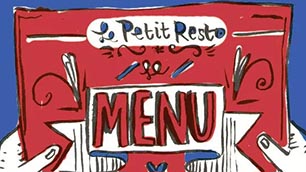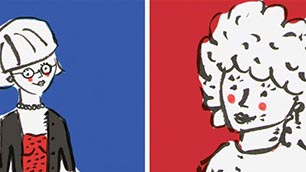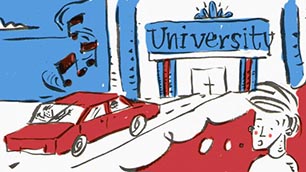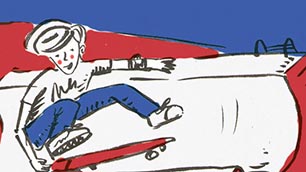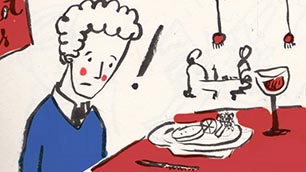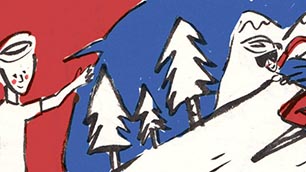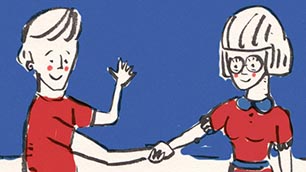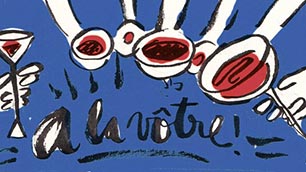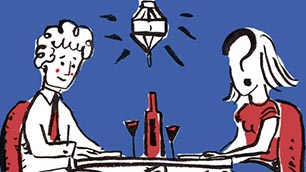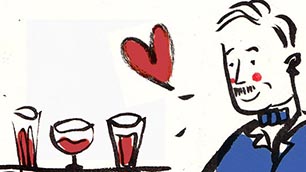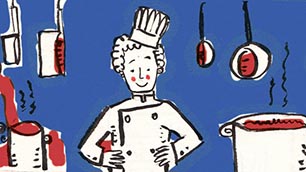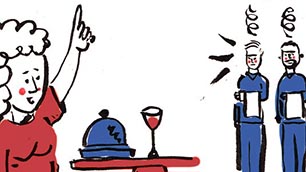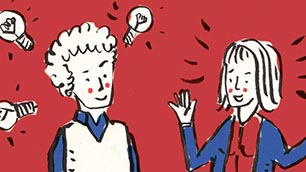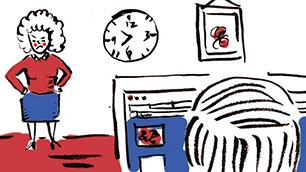| Valérie: | Let’s continue with our French expressions. Do you remember the first expression you learned? |
| Jack: | Oui, it was, ah bon. |
| Valérie: | Very short and cute expression, isn’t it Jacques? |
| Jack: | Short, yes, I don’t know about cute! So what is the expression for today? |
| Valérie: | It’s going to be a really short one as well. Short but efficient. |
| Jack: | I like that! |
| Valérie: | Vous êtes prêt ? |
| Jack: | Oui, je suis prêt ! |
| Valérie: | Il y a. |
| Jack: | Il y a. |
| Valérie: | Très bien Jacques. |
| Jack: | What does that mean? |
| Valérie: | It means there is or there are. Il y a un restaurant français. Il y a un bon menu. Il y a des clients. |
| Jack: | Very cute! I like it! |
| Valérie: | So you see Jacques, the a in the expression is the verb avoir that you learned today. In English, it literally means “there is.” Did you notice that I used ‘un’, ‘une’ and ‘des’ after il y a. Try to use it in a few sentences. |
| Jack: | I see. Il y a Jack. Jack a un restaurant. Il y a un chef in the cuisine. Il y a des serveurs. Il y a a big line to come in. Il y a des journalistes. Il y a good reviews in the magazine. Il y a awards on the wall. |
| Valérie: | Excellent Jacques ! Now let’s try to use the same expression in the negative. Il n’y a pas. Il n’y a pas de problème, il n’y a pas de doute, il n’y a pas de dispute avec les investisseurs, il n’y a pas de... |
| Jack: | I like your confidence. |
| Valérie: | Note Jacques that in the negative, il n’y a pas must be followed by ‘de’ only. Il n’y a pas de. |
| Jack: | Ok. |
| Valérie: | Your turn, votre tour. |
| Jack: | Euh, il n’y a pas de faux pas avec les investisseurs. |
| Valérie: | Very good! Faux pas ! Very smart! |
| Jack: | Merci, merci. |
| Valérie: | Keep going Jacques. |
| Jack: | Il n’y a pas de soupe du jour. |
| Valérie: | Clever! |
| Jack: | Il n’y a pas de joie de vivre. |
| Valérie: | Ah bon ? |
| Jack: | Il n’y a pas de joie de vivre if il n’y a pas de soupe du jour ! |
| Valérie: | I love soup too! That’s a selling argument! |
| Jack: | Il n’y a pas de bon appétit in a bad restaurant. |
| Valérie: | True. C’est très bien Jacques. Now let’s use il y a as a question. You could just say il y a with a question tone to ask ‘is there’ or ‘are there’. For example, il y a des toilettes ? |
| Jack: | Let me try. Il y a un bon menu ? Il y a un chef de cuisine ? Il y a des serveurs ? Il y a un problème ? |
| Valérie: | Non Jacques, il n’y a pas de problème. I think you’re ready for your rendez-vous avec les investisseurs! What do you think ? |
| Jack: | Je suis prêt, j’ai confiance, je n’ai pas peur, il y a du potentiel dans mon concept. Il n’y a pas de problème ! |
| Valérie: | Bonne chance Jacques ! |
| Jack: | Bonne what? |
| Valérie: | Good luck! |
| Jack: | Merci beaucoup ! Au revoir ! |




